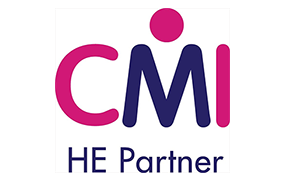BSc (Hons) Business Management
Businesses around the world are experiencing a rapidly changing economic climate to which they must adapt in order to grow and stay competitive. This programme has been developed in conjunction with key employers, ensuring there is a key focus on employability skills throughout the programme. You will develop a range of advanced intellectual, analytical, and critical thinking skills that will position you to help businesses address the challenges they face now and in the future.
Course overview
During the programme you will have numerous opportunities to attend networking events and broaden your horizons through a range of external trips and activities.
In addition to doing a work placement, there is also the option of taking a Professional Placement year. You can also develop your own business and receive support through Ignite, our Enterprise and Entrepreneurship Programme.
On successful completion of the degree you may also obtain a Chartered Management Institute (CMI) Diploma (Level 5) in Management and Leadership. This is a qualification developed in consultation with employers, proven to improve employability upon graduation. Also, membership to CMI is free for three months after graduation.
Work placement
In the second year of the degree programme, you have the opportunity to apply the skills and knowledge learnt during an Industry Placement. This allows you to build your expertise by gaining experiences with prestigious companies in the UK or abroad, whilst growing your range of sector contacts.
Accreditations and partnerships
We are delighted to work with a wide range of businesses, partners and accreditation organisations, some of which are shown below:



Course content
Timetables
Please note that while we make every effort to ensure that timetables are as student-friendly as possible, scheduled teaching can take place on any day of the week. Wednesday afternoons are normally reserved for sports and societies activities.
Modules
Each module is worth a specified number of credits. Each credit equates to 10 hours of total study time. Total study time includes scheduled teaching, independent study and assessment activity.
Full-time students normally take modules worth 60 credits per 15 week semester but this can vary depending on your elective choice. Part-time students taking proportionally fewer credits per semester. All students take a total of 120 credits per level and 360 credits for the degree as a whole. Your overall grade for your degree is based on marks obtained for modules taken at level 5 and level 6 (weighted 30:70 accordingly).
The modules available for this degree are shown below. They may change for your year of study as we regularly review our module offerings to ensure they’re informed by the latest research and teaching methods.
Year one
- 4B001 Practical Business Finance and Accounts: This module introduces students to financial principles and tools essential for rural and agri-business management. Topics include financial statements, budgeting, cashflow, investment appraisal, and risk analysis. Students develop analytical and communication skills through practical applications. Assessment includes a 2000-word problem sheet and a 2000-word professional practice report. The module supports understanding of financial decision-making and performance evaluation in business contexts.
- 4M002 Professional, Practical and Study Skills: This module develops academic, employability, and practical skills for success in university and land-based careers. It includes reflective writing, data handling, digital literacy, and hands-on tasks relevant to the sector. Students explore sustainability, industry challenges, and professional development. Assessment includes a skills portfolio, a 1000-word reflective account, and a group presentation on a sustainability challenge. The module supports self-awareness, technical competence, and a sustainable mindset.
- 4B002 Introduction to Business and Management: This module explores internal and external factors shaping business organisations. Topics include marketing, HR, operations, leadership, and change management, with emphasis on sustainability and digital transformation. Students analyse case studies and develop teamwork and communication skills. Assessment includes a 1000-word essay, a 2000-word case study, and a group presentation. The module supports foundational understanding of business functions and strategic decision-making.
- 4A005 Farming Systems and Sustainability: This module examines diverse farming systems including arable, livestock, mixed, organic, regenerative, and agroecological approaches. Topics include climate change, soil and water management, urban agriculture, and future farming scenarios. Students engage with farm visits, guest speakers, and case studies. Assessment includes a 10-minute recorded presentation and a 2500-word case study-based report. The module supports critical evaluation of sustainability challenges, system transitions, and agroecological practices across global and UK agricultural contexts.
- 4B003 Entrepreneurship, Intrapreneurship and Enterprise: This module investigates entrepreneurial and intrapreneurial approaches to innovation and business development. Students explore opportunity identification, business modelling, and leadership strategies. Assessment includes a 10-minute audio-visual media presentation (50%) and a 3000-word group professional practice report (50%). The module supports development of entrepreneurial mindset, creative problem-solving, and strategic thinking in diverse business environments.
- 4B004 Business Informatics: This module introduces statistical techniques and information systems for business analytics. Topics include data visualisation, probability, spreadsheet modelling, and ethical data use. Students develop technical skills in Excel and data interpretation. Assessment includes a 1500-word spreadsheet skills exercise and a 2500-word data analysis report. The module supports data-driven decision-making and technical proficiency in business contexts.
Year two
- 5M001 Industry Engagement: This module provides students with a structured industry placement to develop professional, technical, and reflective skills in a real-world context. Students complete a minimum of 444 hours of work-based learning aligned to their career goals. Assessment includes a CV and personal statement (500 words) and a reflective portfolio (1000 words). The module supports employability, self-awareness, and the application of academic knowledge in professional settings.
- 5B001 Marketing Management: This module guides students through strategic marketing planning, market analysis, and decision-making. Topics include global trends, consumer behaviour, competitor evaluation, and ethical marketing. Students apply frameworks to real-world business scenarios. Assessment includes two 2000-word professional practice reports focused on analysis and decision-making. The module supports evidence-based marketing strategy development and sustainable business practices.
- 5B005 People and Organisations: This module explores organisational behaviour through topics such as leadership, motivation, personality, and culture. Students engage with case studies, role-play, and business visits to apply theory in practice. Assessment includes a 15-minute group presentation, a 2000-word case study, and a written exam. The module supports critical analysis of workplace dynamics and fosters skills in communication, teamwork, and organisational evaluation.
- 5B002 International Business: This module explores globalisation, trade theories, and internationalisation strategies. Students analyse cultural, political, and economic environments affecting global business. Assessment includes a 3000-word report (80%) and a 30-minute multiple-choice test (20%). The module supports critical evaluation of international trade, global strategy, and the challenges faced by companies entering new markets.
- 5B003 Financial management: This module introduces financial principles and decision-making tools for business success. Topics include financial statements, capital budgeting, working capital, and financial planning. Students apply theory to real-world scenarios and analyse companies using ratio analysis. Assessment includes a 15-minute individual presentation and a 3000-word essay. The module supports strategic financial thinking and practical application in business contexts.
- 5M002 Research and Evidence: This module develops students’ ability to design and justify research proposals using both quantitative and qualitative methods. Topics include study design, data analysis, ethics, and communication of findings. Students engage with real-world problems and explore research applications across disciplines. Assessment includes a 2500-word research proposal and a 2-hour online test. The module supports evidence-based thinking, analytical skills, and preparation for the Level 6 dissertation.
- 5B004 Business Strategy for Competitive Advantage: This module examines how organisations develop and implement strategies to achieve long-term success. Students apply frameworks such as PESTEL, Porter’s Five Forces, and Ansoff’s Matrix to analyse competitive environments. Assessment includes a 1200-word essay (30%) and a 2800-word professional practice report (70%). The module supports strategic thinking, evaluation of competitive advantage, and application of theory to real-world business contexts.
Year three
In the final year, you will have the opportunity to select elective modules and specialise in subjects of particular interest and relevance to your future career aspirations.
- 6B002 Strategic Management: This module explores strategic management theories and their application in dynamic business environments. Students engage with tools such as scenario analysis, strategic foresight, and business model innovation. Assessment includes a 1500-word scenario analysis report (40%) and a 2500-word business model development report (60%). The module integrates ESG principles, emerging technologies, and design thinking, preparing students to develop sustainable and innovative strategies for contemporary organisations.
- 6B003 Managing Innovation: This module equips students with the skills to manage innovation at strategic and operational levels. Through case studies and interactive projects, students explore frameworks, creativity, and the role of technology in driving innovation. Assessment includes a 15-minute individual presentation (30%) and a 3000-word essay analysing innovation in selected businesses (70%). The module encourages sustainable thinking, ethical innovation, and strategic leadership in evolving markets.
- 6M001 Research Project: This module enables students to undertake an independent research project aligned with their subject area. Topics are student-selected and supported through supervisor meetings and workshops. Assessment includes a 5-minute progress presentation and a 12,000-word thesis or multimedia portfolio. The module supports critical evaluation, ethical research design, and evidence-based recommendations for real-world challenges
Plus a choice of TWO electives, one selected from each group from those shown below:
Group 1
- 6B004 Organisations in a Changing World: This module examines organisational structures, leadership, ethics, and decision-making through interdisciplinary lenses. Students explore management theories and apply them to real-world organisational challenges. Topics include diversity, communication, power dynamics, and organisational change. Assessment includes a 30-minute group presentation (individually marked) and a 3000-word professional practice report. The module fosters critical thinking, leadership, and problem-solving skills for managing contemporary organisations.
- 6L005 Rural Land and Business management: This module explores agricultural tenancy law and rural estate business management. Topics include the Agricultural Holdings Act 1986, Agricultural Tenancies Act 1995, valuation methods, succession planning, and diversification strategies. Students engage with case studies and site visits to apply legal and strategic knowledge. Assessment includes a 1200-word problem sheet, a 2-hour written exam, and a 1600-word professional practice report. The module develops legal, analytical, and strategic planning skills for rural land professionals.
- 6B005 Business Communications and Negotiation Skills: This module develops advanced communication and negotiation skills for professional and personal contexts. Students explore rhetorical techniques, intercultural communication, and persuasive strategies. Topics include non-verbal cues, apologies, conflict resolution, and motivational interviewing. Assessment includes a 1000-word written self-reflection and a 10-minute pre-recorded audio-visual presentation. The module supports confident, ethical, and effective communication across diverse business scenarios.
Group 2
- 6B001 Changing Consumer Behaviour: This module explores how individuals and societies consume, and how behaviour can be influenced toward sustainability. Drawing on psychology, sociology, anthropology, and consumer culture, students critically assess marketing strategies and behavioural interventions. Topics include ethical consumerism, identity, technology, and globalisation. Assessment includes a 1600-word annotated bibliography and a 2400-word essay. The module supports understanding and shaping consumer behaviour for positive social and environmental impact.
- 6B006 Rural Entrepreneurship: This module develops the skills needed to launch sustainable rural ventures. Students explore idea generation, business modelling, market analysis, financial planning, and ethical considerations. A study tour and guest lectures provide real-world insight. Assessment includes a 10-minute recorded pitch presentation and a 3000-word business plan. The module supports entrepreneurial thinking, strategic planning, and the creation of viable rural enterprises.
- 6B007 Corporate Finance: This module provides a comprehensive foundation in corporate finance. Topics include capital budgeting, risk and return, portfolio theory, mergers and acquisitions, and sustainable investment. Students analyse real-world financial decisions and market strategies. Assessment includes a 15-minute individual presentation and a 3000-word essay. The module supports strategic financial planning and decision-making in corporate contexts.
The availability of electives to individual students will be dependent on timetabling considerations and on sufficient students electing to take part.
Disclaimer information
The University has established various rules and regulations that you must agree to and follow if you accept an offer to study with us. View our full disclaimer notice.
Careers and graduate destinations
- Business development manager
- Project manager
- Account manager
- Sales manager
- Banking graduate
- Investment analyst
- Marketing account executive
"The staff have been great, we have lecturers who have real-world experience, they are successful entrepreneurs in their own right but also great at teaching about it."
Emily Tal, Graduate
Entry requirements
Typical offers
Required: GCSE minimum five GCSEs at Grade C/4 including English Language and Mathematics (or Maths Numeracy for Welsh applicants) plus satisfactory level 3 qualifications:
- A-Level: (example grades CCC) – minimum of 96 UCAS tariff points (applicants should have either three A-levels or two A-level and two AS level subjects or equivalent qualifications)
- C&G Advanced Technical/BTEC - Level 3 Extended Diploma (1080) at Merit-Merit-Merit
- C&G NPTC/C&G Advanced Technical/BTEC - Level 3 Diploma (720), Extended Certificate (360) and 90-Credit Diploma (540) acceptable when accompanied by other Level 3 qualifications
- International Baccalaureate: 26 points
- Access to Higher Education: 45 credits at level 3, of which a minimum of 15 must be awarded at Distinction and 15 at Merit or higher (Pass at Functional Skills level 2 are accepted in lieu of GCSE English & Mathematics)
Other level 3 qualifications will be considered.
Visit the UCAS website to calculate your UCAS Tariff points from the qualifications and grades achieved.
You may also be eligible for a contextual offer if you’re from one of our link colleges, have been in care, from a non-white ethnic background, live in an area with low progression rates to university or you are a veteran/child of an armed forces family.
Flexible entry
The University welcomes interest from applicants who may not have the standard entry requirements. A wide range of qualifications and experience are accepted in order to join University degree programmes. The University always considers evidence of personal, professional (APL) and educational experience, (APEL), which show an ability to meet the demands of their intended programme of study.
Further information
Alternative entry routes are available for a range of other qualifications. Prior experience is also considered, subject to approval by the programme manager and admissions staff.
Read more general information about our entry requirements.
If you don't meet the entry requirements of this degree, you may be eligible for one of our Foundation degree courses or another related degree course.
International students will also need to achieve IELTS Academic or equivalent at the appropriate level for your programme of study. English language requirements for international students.
For any further help, please contact our admissions team:
- Email: admissions@rau.ac.uk
- Telephone: +44 (0)1285 889912
Fees
2026-27 Applicants
For the academic year 2026-27 the tuition fees for this course are:
| UK | International | |
|---|---|---|
| Full-time | £9,790 per year | £16,950 per year |
For part-time study, please contact admissions@rau.ac.uk for further information.
Please also refer to the funding your time at university page.
Tuition fees may be subject to an inflationary increase each year as set out in our Access and Participation Plan and are subject to Government and regulatory body conditions.
If you are an Irish national you can check if you meet the requirements for Home Fees. Please visit the UKCISA website and consult the pdf guide “England HE – who pays Home Fees”. First check category ‘3 years in Republic of Ireland/UK/Islands, settled in UK’ or ‘Brexit temporary offer for courses starting before 2028: Irish citizens with residence in Europe or overseas territories’. You will possibly need to be fee assessed when you submit an application for study to the RAU.
Scholarships
The University offers a wide range of generous fee waivers and bursaries. To find out more about the these, please visit the bursaries, awards and scholarships page.
Ready to take the plunge? Apply now
Applications should be made by the UCAS deadline to ensure we are able to offer you a place on your first choice course. However, if you have missed the deadline please contact Admissions@rau.ac.uk as there are usually places available.
If you would like to apply during UCAS Extra or Clearing, please check that we have places available.
Applicants wishing to study on a course on a part-time basis will need to apply directly to the RAU.
Please contact admissions@rau.ac.uk to discuss your requirements and obtain an application form.



